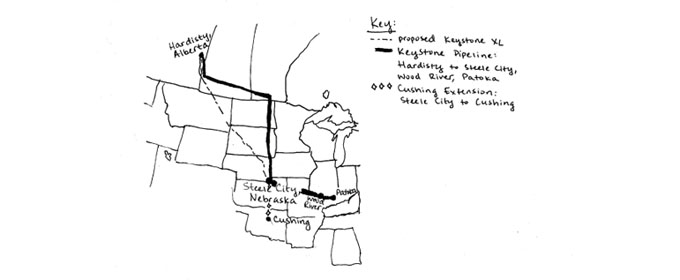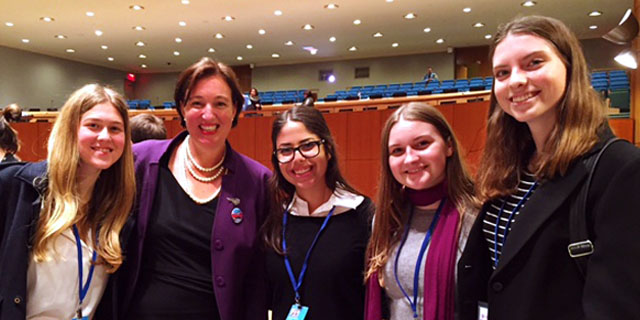
During the week of Apr. 13,2014, the Obama administration indefinitely delayed its decision on the Keystone XL Pipeline, six years after the proposal was first introduced. If created, the Keystone Pipeline would run from Hardisty, Alberta, Canada, to Steele City, Nebraska, carrying oil from the tar sands in Canada’s western prairies to refineries in Texas and Oklahoma. Both supporters and critics believe that the delay will last through the 2016 presidential elections, making Keystone an important debate topic for the upcoming election season.
The Keystone Pipeline would link up with other pre-existing pipelines in Nebraska that would then carry the oil to Illinois, Oklahoma and Texas. Canada’s National Post reported that, if the pipeline is not built, Canada will lose $632 billion in revenue over the next 25 years because the oil will remain untapped. According to The New Yorker, Keystone itself is the only reason why the oil would be extracted, although The Washington Post’s editorial board claims, in an attempt to prove that Keystone will not cause extra environmental damage on its own, that “the crude from the oil sands is still going to get extracted and burned. By this logic, [thepipeline] would have no realworld consequences.”
However, environmentalists are currently pushing the Obama administration to kill the project entirely because of its potentially detrimental effects on the environment. When Obama delayed the project for the first time in 2011, Glenn Hurowitz, an environmental activist and fellow at the Center for International Policy, said, “the delay could leave the final decision in the hands of Mr. Obama’s Republican successor,” according to the New York Times.
K.C. Golden, policy director for Climate Solutions, developed a concept called “the Keystone Principle,” which states that in order to push back climate change, large projects that add to carbon emissions need to be suspended. According to The New Yorker, Golden referred to Keystone as “both a conspicuous example of this kind of investment and a powerful symbol for the whole damned category.”
Advocates for the pipeline explain that other economy-wide policies can be put in place to limit the release of greenhouse gases, such as carbon taxes, which are intended to reduce the emission of carbon dioxide. Environmentalists suspect, however, that supporters of Keystone are only making these claims to push Obama into making the decision they want and will forget about aiding the environment once they get it.
TransCanada, the proposer of the Keystone project, shared on the pipeline’s website that it is a “critical infrastructure project for the energy security of the United States and for strengthening the American economy.” Some critics of the project agree, and according to the New York Times, concede that the building and use of Keystone would in fact create thousands of jobs.
According to The New Yorker, the administration’s decision to delay its decision on the project has to do with politics, not the economy or the environment. CNN reports that the Keystone debate is all a part of the larger dispute in the Senate between Republicans, who are generally supported by the energy industry, and Democrats, who are generally supported by environmentalists.
“Approving the pipeline before the election would rankle Obama’s allies and donors in the environmental community, but rejecting it could be politically damaging to vulnerable Democrats running this year in conservative-leaning states,” CNN stated.










